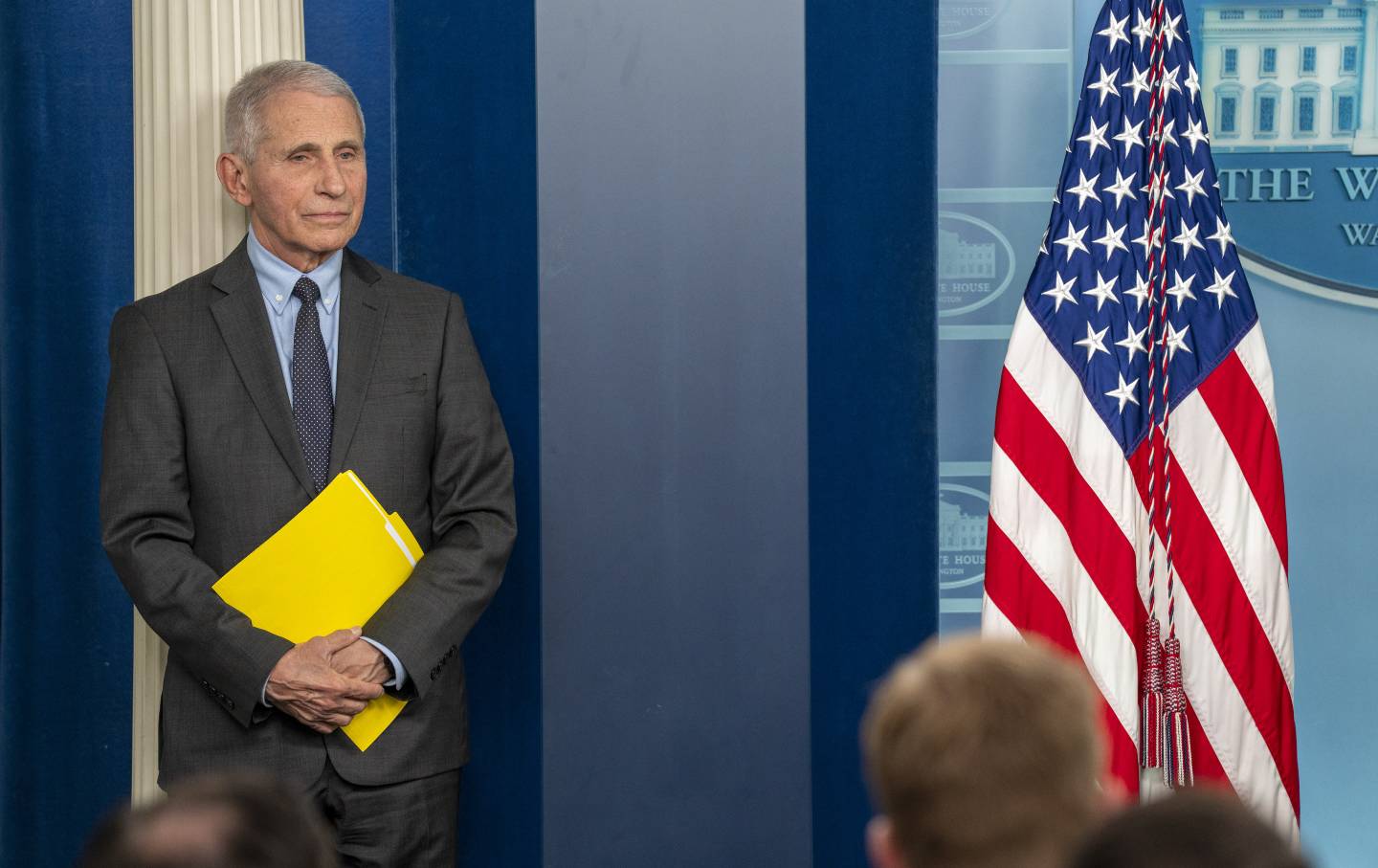[ad_1]
A changing of the guard in US public health is impending—and, with it, a chance to rejuvenate a flailing field. Anthony Fauci has retired in the shadow of one of the worst preventable disasters in history, and President Biden is moving to make new appointments while establishing a permanent White House Office for Pandemic Preparedness and Response Policy. In doing so, Biden and his advisers must confront the fact that the rot in public health is structural: It cannot be cured by simply rotating the figureheads who preside over it. Building effective national health infrastructure will require confronting pervasive distortions of public health and remaking the leadership appointment systems that have left US public health agencies captive to partisan interests.
Part of what has made public health vulnerable and a plaything of partisan politicking is the field’s gradual medicalization. Consider, for example, the history of the nation’s most important public health agency. Since 1953, every director of the Centers for Disease Control and Prevention (CDC) has had a doctor of medicine, or MD, degree as their primary credential, with secondary degrees serving mostly as résumé decor. Given that medical interventions constitute only 10–20 percent of modifiable factors affecting health, the backgrounds reflected in CDC leadership—and, likewise, at most state and local public health agencies—are notable for their consistent prioritization of narrow biomedical expertise at the expense of other fields that represent the remaining 80–90 percent of pertinent knowledge for making public health policy.
Physician and public health scholar Milton Roemer once observed that for the work of public health, “most of medical education is irrelevant.” But neither doctors’ irrelevant medical knowledge nor relative ignorance of essential fields—labor history, social anthropology, political economy, epidemiology, environmental sciences—is the most troubling aspect of physician control of public health. Rather, it’s the lack of epistemic humility, conferring an inability to recognize the limits and hazards of clinical reasoning, with which medical training often imbues them. Clinical reasoning is not only not the population-level logic of public health; it is frequently antithetical to it.
The Hazards of Clinicism
When we treat patients, doctors are appropriately oriented around taking care of the individual in front of us. We recognize that we typically cannot change their life circumstances—such as economic and housing conditions, employers’ demands, student and medical debt, neighborhood violence, or social isolation—and so we focus our clinical attention on helping them live as well as possible within existing constraints.
Public health, by contrast, is about treating populations. As with medicine, the goal of public health is to enable individuals to be free of health limitations that curtail their ability to live as they please. But public health pursues this by very different means. The task is not to help individuals accommodate to oppressive social or labor contexts. It is instead to use the power of government to change conditions that are constraining people’s freedom. The core tools of public health, then, are not just vaccines or lab tests but also policies pertaining to corporate regulation and consumer safety standards; labor protections; public jobs and housing programs; investments in community health workers, decriminalization, and decarceration; and civil rights lawsuits.
Public health doesn’t meet people where they are at; it enables them to move freely by altering their environment to facilitate risk-reducing behaviors, such as staying home from work when sick without fear of lost income. It’s not about individual risk tolerance, but about government making use of population-level tools—such as infrastructural investments in clean air and water—to lower the level of risk to which individuals are exposed by living in society. To do this effectively, public health prioritizes protections for those whose freedom is most obstructed by the current state of affairs: those who are immunocompromised, elderly, or incarcerated; migrant agricultural workers; people of color; and others especially exposed to harm. Public health should do this not simply out of altruism but because it recognizes that allowing harm to fall on vulnerable groups will ultimately return as multiplying harm for society. Public health thus requires seeing the world “from below,” rather than through the eyes of bankers, economists, or opinion writers at national newspapers.
Given that it differs from clinical medicine, public health requires different modes of analysis. For example, perverse incentives for overtreatment are rampant in US medicine and cause harm. But if these concerns are simply translated to public health scenarios without a proper accounting of population-level dynamics, they lead to conclusions that may sound smart to doctors’ ears but are, in reality, fundamentally misguided. For example, arguments against masking or Covid-19 vaccination recommendations for individuals at relatively low risk of a severe outcome, such as students in schools and colleges, often fail to address how young people are inevitably part of epidemiological networks involving teachers, custodial staff, parents, grandparents, and other more vulnerable groups. Likewise, the precautionary principle—which underlines that in cases of grave threats to public health, scientific uncertainty should not be used as grounds for delay in implementation of preventive measures—is readily apparent as a pillar of responsible health policy. But it can be confusing to clinicians who are trained to think on a smaller scale and to follow reactive protocols of treatment rather than prevention.
Today, the dominance of clinical reasoning that reduces health to individual patients while normalizing their social conditions—what I call “clinicism”—over public health is stronger than ever. Clinicism has become so pervasive that it now shapes not only physicians’ perspectives on public health but also much of what passes for public health education, such as the largely decorative, microwave “master of public health” degrees acquired by many physicians seeking leadership roles. This is in part because the individualistic paradigms of biomedicine pair very well with the economic philosophies of the two major US political parties.
Privatized Public Health
Since at least the 1990s, when Bill Clinton championed “welfare reform,” both Democratic and Republican Party leadership have embraced privatization, deregulation, and “free markets.” This economic agenda seeks the withdrawal of government from public provision of services in order to maximize opportunities for private profit-making. Not only does this exacerbate inequality; it also erodes the material basis for trust in both government and one another, leading to the plague of public distrust now undermining vaccination campaigns.
This anti-public-systems paradigm has only gained steam during Covid-19. For example, Biden’s Covid-19 response coordinator, Dr. Ashish Jha, has been advocating for the “commercialization” of Covid-19 tests, vaccines, and therapeutics. Because people can purchase these on their own, he has explained, the government should no longer be involved.
What Jha, Fauci, CDC Director Rochelle Walensky, and other officials have been tasked with implementing is a basic contradiction in terms: Privatized public health is not, in fact, a defensible policy. But because the president appoints the nation’s most powerful public health officials, economic priorities that serve partisan electoral interests have supplanted actual public health politics, thereby turning public health agencies into partisan pawns.
Rather than underlining the population-level health benefits of addressing such structural deficiencies as lax labor protections, epidemic-amplifying incarceration systems, unregulated pharmaceutical industry greed, exclusionary for-profit health care systems, and economic inequality, public health figureheads are instead compelled to look for ways to shore up existing unequal systems and to cast their political bosses in the most flattering light. If they refuse to do so, they can expect to be summarily dismissed and replaced by a more compliant physician from among the many eagerly waiting in the wings.
Public Health Should Be Political, but Not Partisan
Health officials are taking orders from politicians, while what we need is for federal scientific agencies like the CDC, NIH, EPA and Occupational Safety and Health Administration to be nonpartisan institutions that tell lawmakers what to do by publicly presenting recommendations for executive and legislative action. To enable this, their leadership should be chosen by as nonpartisan a process as possible. The National Academies of Sciences, Engineering, and Medicine (NASEM), established in 1863 to advise the federal government on matters of science and the arts, could be an ideal body for guiding such a process. Delegating authority to the NASEM to nominate for subsequent congressional confirmation the leadership of federal scientific agencies, for example, could enable these agencies to operate more independently of partisan interference and be more effective at serving the public.
Whatever approach is taken, it is vital that we acknowledge that public health agencies do work that is, by its very nature, political. If public health leaders shy away from politics, it renders their work worse than useless. But for the intrinsically political work of public health to be effective, we cannot allow it to continue to be conflated with partisan loyalties. To issue policy recommendations in the public interest, to challenge politicians and oligarchs irrespective of party affiliation, and to be trusted by the public while doing so, public health officials need to be insulated from partisan power.
Figures like Jha, Walensky, and Fauci currently possess unusually public profiles with potential to help accelerate needed changes. Each of them has faced harsh public criticism and been repeatedly put on the defensive by their public health colleagues. They are now well positioned to publicly reflect on the limitations they have faced. By doing so, they could call for the president and Congress to address the policy structures that have generated the partisan clutches by which public health officials have been restricted under Trump and Biden.
It’s only a matter of time before far-right, anti-science agendas return to power. The Biden administration should recognize that and remake the appointment structure for public health leaders that is in line both with their long-term interests and those of the public they are meant to serve.
To achieve the structural reorganization of US public health is a tall order. But if there has ever been a time when we needed a transformation of our public health agencies, this is it. We should use every resource to try to achieve change while the window of possibility remains wider than usual in the still-rippling wake of undeniable failure.
[ad_2]
Source link

